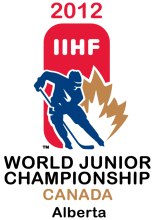CALGARY – Bob Nicholson, president of Hockey Canada since 1998, is one of the most influential men in the world of hockey. He’s in charge of putting together Team Canada for all international events, and from his office in Calgary, he also oversees minor-league and amateur hockey across the country, making vital decisions on rules such as what age to start body-checking and how best to eliminate head shots from the game.
This Christmas he’s as busy as he’s ever been, running what is likely to become the most successful World Juniors tournament in IIHF history. All games are being played in two NHL arenas, in Calgary and Edmonton, and all tickets were sold within days of the conclusion of last year’s U20s in Buffalo.
IIHF.com caught up with Nicholson prior to the 36th IIHF Ice Hockey U20 World Championship.
The incredible success of Canada at the U20 started in 1982 with the creation of the Program of Excellence. What were you doing 30 years ago?
I was technical director of the British Columbia Amateur Hockey Association. The funny thing is that Dave Andrews, the president of the American Hockey League, hired me in 1979 and we started the B.C. Olympic program for under-17 players to expose the top 44 kids to the best coaching and training, and those coaches were guys like Dave King, Clare Drake, George Kingston.
Has the Program of Excellence become too successful to the point that the U20 is no longer as competitive as it should be?
Absolutely not. We’ve been in 10 finals in a row, but look at how we got to some of them, like Ottawa. Sweden has done a great job the last few years, the Americans are challengers every year. Russia won last year, and Finland is always there. In any given year, any team that comes in well prepared has a chance for a medal, I believe.
How will you define success for the upcoming U20?
We’ll be successful if we get big crowds to all games, not just Canada’s games. We’ve sold the tickets, but now it’s about getting the people in the seats. We also want to make the event a special experience for all teams and make it first class for all the players. And for us, we want to get back to winning gold.
The U20 goes to Europe for the next two years. Is this good, or is it better to keep the event in Canada?
It’s good to be going back to Europe. We have to make this work in other countries, have the juniors grow throughout Europe. I’m hoping we get better TV coverage in the next couple of years, and that fans have been watching the games in Canada and saying, ‘Wow – look at those huge crowds. I want to see those games.’ We have to get fans excited about seeing players who’ll be playing pro very soon.
What’s your fondest U20 memory?
I’ve had so many good memories because of the gold medals, but I think the most satisfying thing for me is the partnership we’ve achieved with the CHL and TSN, and seeing [former Hockey Canada president, current IIHF Vice President] Murray Costello and chuckling about where we were and how far we’ve come. It has been partnerships that have made the World Juniors so special.
Part of the importance of the U20 is not just developing players but also coaches. Who are some of the ones you’re most proud to have given them a first big chance?
We’ve also developed so many coaches, guys like Mike Babcock, Tom Renney, and hopefully Don Hay, who won gold in 1995 and is now back again 16 years later. And these guys, as well as coaches like Pat Quinn, always come back. They know how important this event is.
The U20 is so big that the U18 is now like the U20 used to be. How can you grow that event?
The IIHF deserves a lot of credit for how they’ve developed many tournaments, and the U18 is one. I hope we can host one soon and help develop that event here in Canada a little more. It’s not at the best time of year for us, but other countries are happy with the time slot, so it’s our job to work within that and try to make it better.
ANDREW PODNIEKS
|







